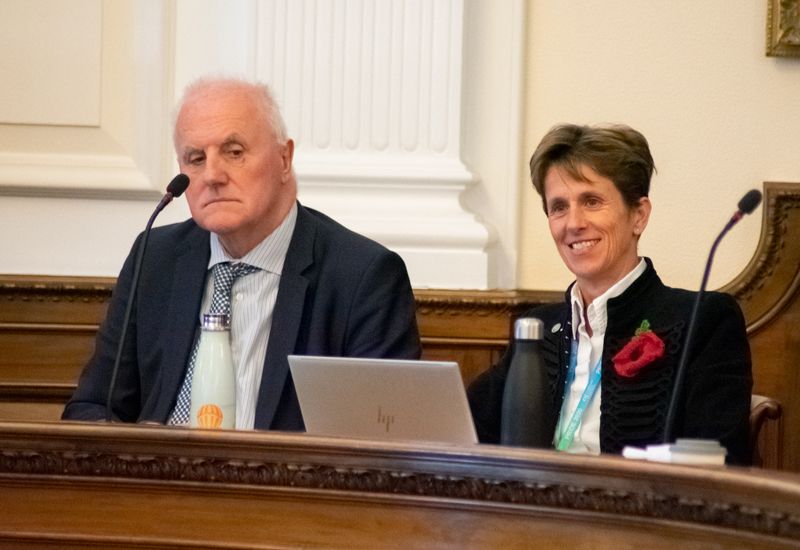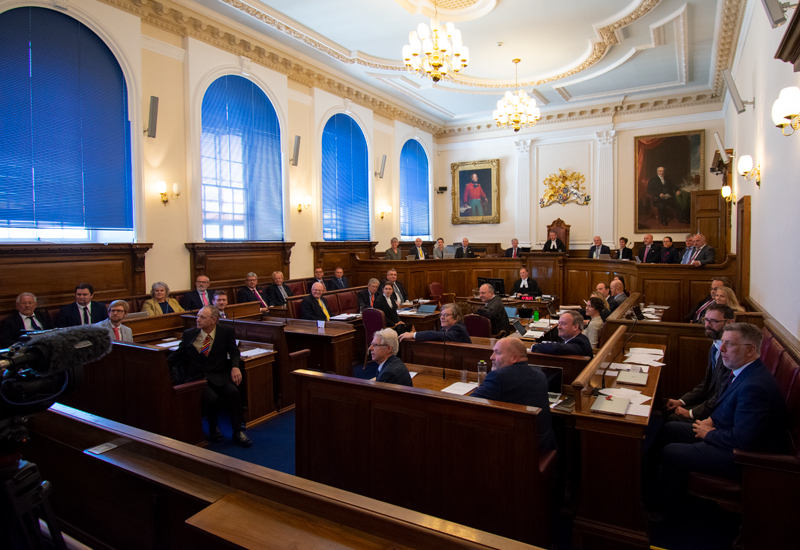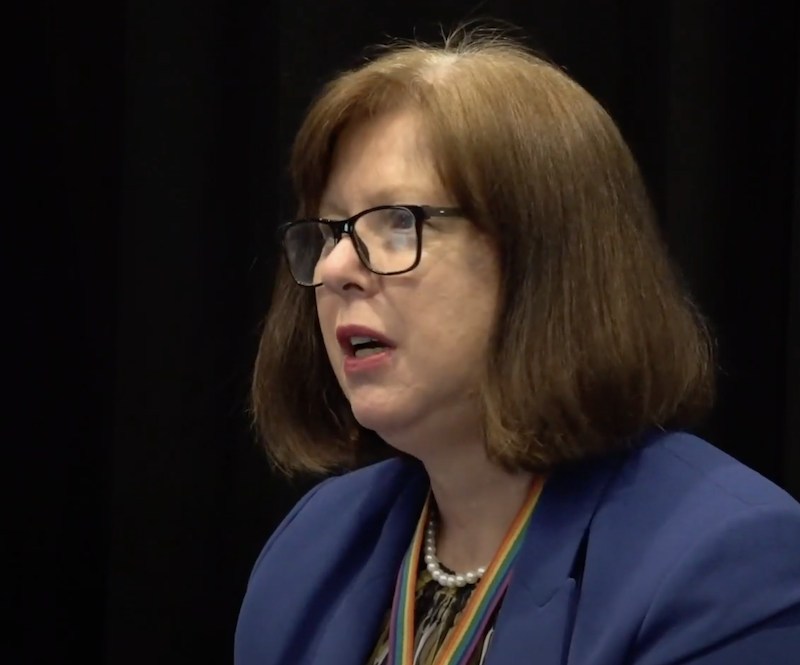


The Civil Contingencies Authority looks set to continue leading the management of covid-19 through the use of emergency regulations for months to come.
Once the Authority steps back from its current role, the Medical Officer of Health, Dr Nicola Brink, will have extended powers to impose isolation and other restrictions on people infected or suspected of being infected with covid-19 – if the States agree to proposals in a policy letter jointly published today by three States’ committees.
However, the proposals already face opposition from members who sit on two of the three committees putting them forward.
The three committees – Policy & Resources, Health & Social Care and Home Affairs – say the recent arrival in the Bailiwick of the omicron variant of covid-19 shows the continuing need for the Authority and emergency regulations.
“Currently, the Bailiwick is preparing for a potentially large wave of omicron cases and, while there is still a lot of uncertainty, should that large wave transpire it is likely to do so at very short notice,” said the three Committees in a joint statement.
“Alongside the risk it presents to the health and lives of individual Islanders, which may be less severe than with previous variants, it also poses risks for the ability of the islands to function normally, as having very large numbers of ill people in a short time could affect critical services’ ability to run effectively, even if a serious illness is avoided in most cases.
“This new and different challenge reflects why there continues to be a need for using emergency powers to respond to unpredictable situations at this current time.”

Pictured: Early in the New Year, the States' Assembly will be asked to debate proposals about how to organise decision making in the ongoing management of the covid-19 pandemic.
The Authority has sweeping powers to make emergency regulations or to empower others to make emergency regulations without the involvement of the States’ Assembly. However, such regulations must be approved by the States’ Assembly within seven days and can remain in place for a maximum of 30 days.
The three Committees are asking the States’ Assembly to look ahead to a time when emergency regulations may no longer be required. In particular, they are asking the States to back two proposals for the ongoing management of the pandemic and any future pandemics.
Their first proposal – for the ongoing management of the current pandemic – would extend public health legislation dating back to 1936 to give the Medical Officer of Health powers to impose isolation and other restrictions on people infected or suspected of being infected with covid-19.
Their second proposal – for the management of future pandemics – would allow the Committee for Health & Social Care to make orders for the Medical Officer of Health’s new powers to be extended to other diseases.

Pictured: A majority of the members of three States' committees are asking the Assembly to agree to extend the powers of the Medical Officer of Health, Dr Nicola Brink, under public health legislation dating back to 1936.
The States' Presiding Officer, Bailiff Richard McMahon, has granted a request from the three Committees for their proposals to be debated and voted on at the next States' meeting on 26 January. If the States agree to the proposals, legislation will need to be drafted and taken to the States for debate before the changes could come into effect. Ordinarily, the earliest that could happen is at the States' meeting on 30 March.
The proposals are unanimously supported by the members of the Policy & Resources Committee but they have only the majority support of the members of the Committee for Health & Social Care and Committee for Home Affairs. The dissenting members are Deputies Tina Bury and Aidan Matthews (Health & Social Care) and Deputy Andrew Taylor (Home Affairs).
Deputy Heidi Soulsby, Vice-President of the Policy & Resources Committee said: “This is an important debate for our Assembly to have, and it’s right that all members can openly discuss the right way for our community now to handle this ongoing pandemic, which is for most islanders unlike anything we’ve previously experienced in our lifetimes.
“It has been going on for a long time now, and we are working very hard to learn to live responsibly with the virus. But the pandemic is not yet behind us and we know we need to still react quickly to new developments that can dramatically change the risks for our community at short notice, and the emerging situation with the omicron variant is a case in point.
“I believe our response to the pandemic has been balanced and proportionate and sought to impose the least restrictive measures possible by considering what was genuinely necessary to keep our community safe, and even then, they were kept in place for as short a time as possible.
“Emergency regulations are valid for a maximum of 30 days. I think compared to some of the measures in place in other jurisdictions, a clear and concerted effort has been made in the Bailiwick to allow people to live their lives as freely and as normally as possible. And that is thanks to the decision-makers themselves in this term and the last, the legal and governance structures we have in place, and the amazing response of islanders.”

Pictured: The Committee for Health & Social Care is divided on the proposals submitted to the States' Assembly. The Vice-President, Deputy Tina Bury, pictured top right, and Deputy Aidan Matthews, pictured bottom centre, are opposed to the proposals.
Deputy Al Brouard, President of the Committee for Health & Social Care said: “I’m genuinely pleased the Assembly will have the opportunity to fully debate how we manage our response to COVID-19.
“We know there are a real mix of views. We have that within our own Committees. And I look forward to discussing those fully and openly with all members. The Committee for Health & Social Care has had a central role in the ongoing response, including in the roll-out of the vaccination programme and, as is reflected in the policy letter, managing the pressures the pandemic places on health services.”
Deputy Rob Prow, President of the Committee for Home Affairs said: “By having this debate, we add to the democratic scrutiny that must continue to form part of our governance even where we are dealing with this ongoing emergency.
“The omicron variant is the latest challenge we face and shows how unpredictable and fast-changing the pandemic still is, with very serious potential consequences. We need the ability to respond quickly and effectively to protect our Bailiwick, but that must be proportionate and grounded by robust safeguards.
“The Civil Contingencies Authority as a body, both in this term and the previous term, has in my view shown itself to be an effective vehicle for managing the response to this pandemic, with safeguards to ensure it continues to act proportionately and to return regularly to the wider States’ Assembly. By any comparison with anywhere in the world, the Bailiwick has responded extremely well to this enormous challenge, protecting both lives and freedoms, and we must make sure we can continue to do so.”
Comments
Comments on this story express the views of the commentator only, not Bailiwick Publishing. We are unable to guarantee the accuracy of any of those comments.